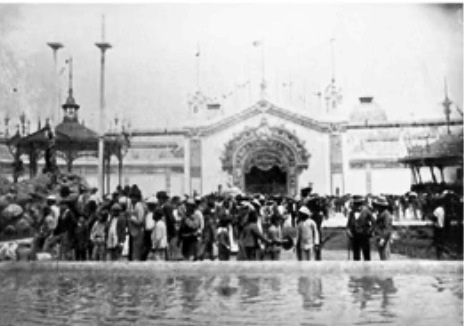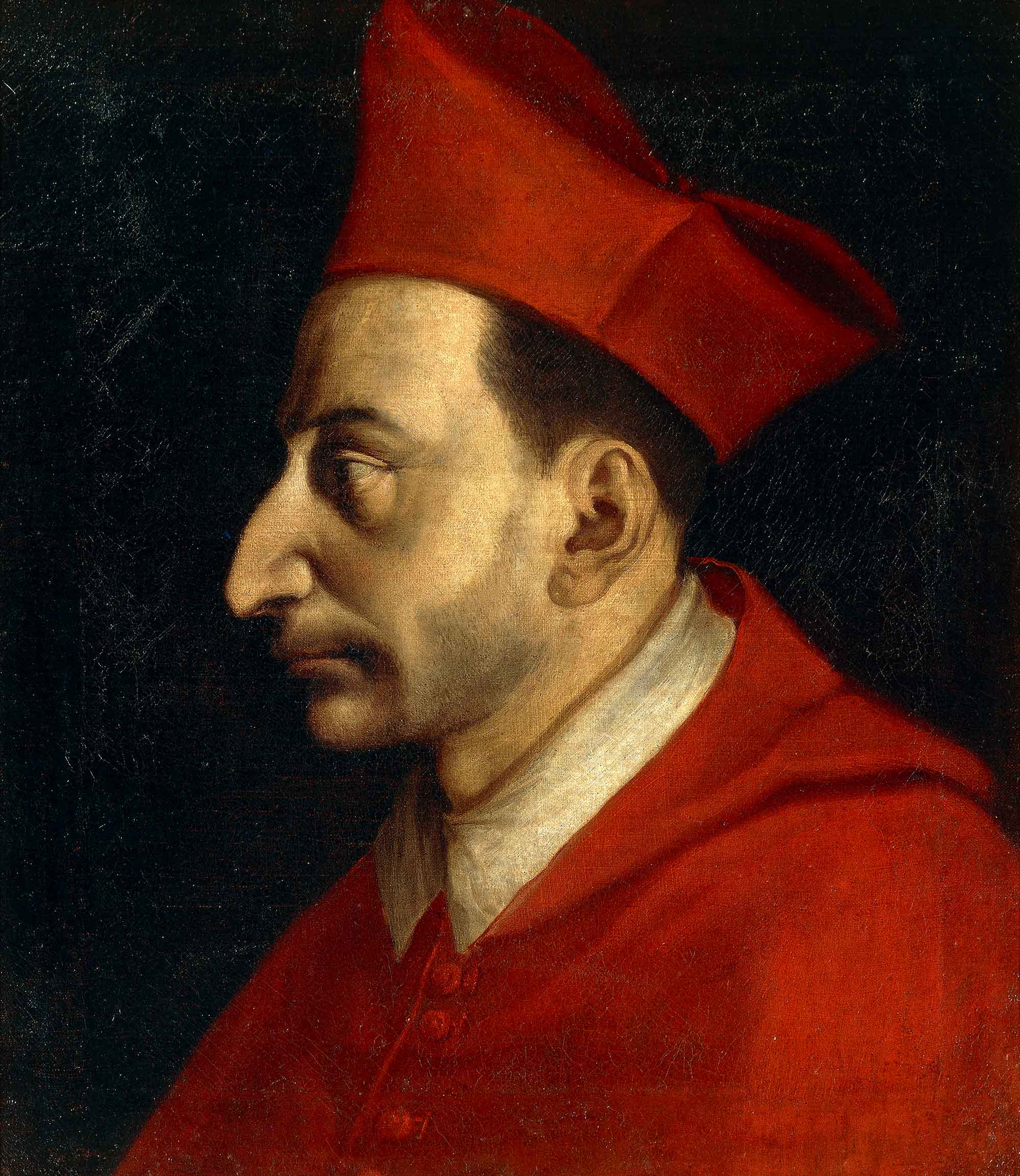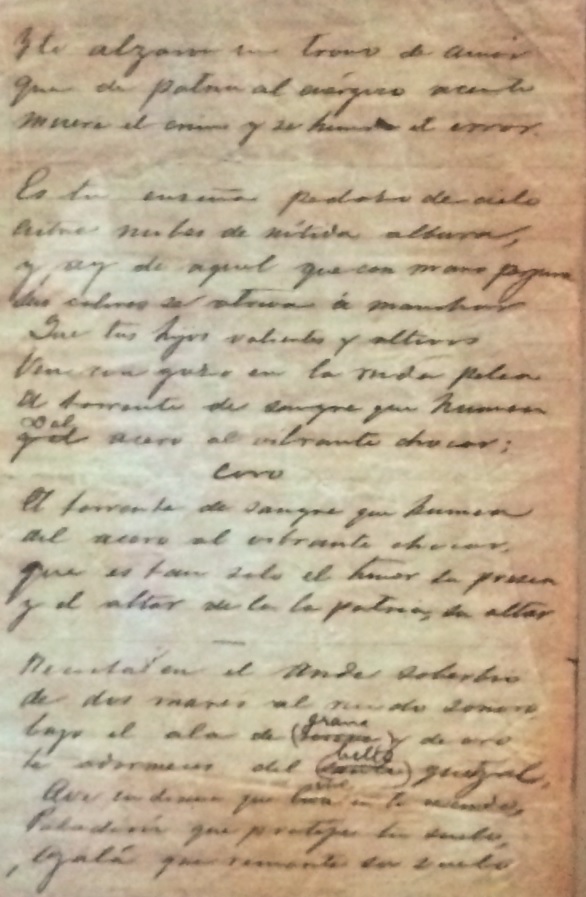|
Rafael Spinola
Rafael Spínola (1866 – 4 October 1901 in Guatemala City) was a writer, journalist, politician and public speaker from Guatemala. Director of the well known cultura magazine ''La Ilustración Guatemalteca'' in 1896 and 1897, was Secretary of Infrastructure in Manuel Estrada Cabrera first presidential term. He also created the "Fiestas Minervalias", which were a celebration to the studious youth and the president Estrada Cabrera rule. He was also the one that signed the treaty granting the American company "The Central American Improvement Co. Inc." to finish the Northern Railroad -which had been left unfinished after president José María Reina Barrios assassination on 8 February 1898–, which would be the stepping stone for the operations of the United Fruit Company in Guatemala. He was the father of Guatemalan poetesse Magdalena Spínola (1896–1991). Biography Ancestors Cavalry lieutenant colonel José María Espínola Baeza y Bravo arrived to Guatemala on 12 June ... [...More Info...] [...Related Items...] OR: [Wikipedia] [Google] [Baidu] |
University Of San Carlos Of Guatemala
The Universidad de San Carlos de Guatemala (USAC, ''University of San Carlos of Guatemala'') is the largest and oldest university of Guatemala; it is also the fourth founded in the Americas. Established in the Kingdom of Guatemala during the Spanish colony, it was the only university in Guatemala until 1954,In 1954 a coup led by the National Liberation Movement which was sponsored by the United Fruit Company and coordinated by CIA and State Department American operatives who had links with the US company triumphed . although it continues to hold distinction as the only public university in the entire country. The university has had five major transformations: * Royal and Pontifical University of San Carlos Borromeo (1676–1829): Established during the colony by the Spanish Crown in the 17th century, approved by the Vatican and directed by regular orders of the Catholic Church. After the Independence in 1821, it was called Pontifical University. * Academia de Ciencias (Academy of ... [...More Info...] [...Related Items...] OR: [Wikipedia] [Google] [Baidu] |
Veracruz
Veracruz (), formally Veracruz de Ignacio de la Llave (), officially the Free and Sovereign State of Veracruz de Ignacio de la Llave ( es, Estado Libre y Soberano de Veracruz de Ignacio de la Llave), is one of the 31 states which, along with Mexico City, comprise the 32 Federal Entities of Mexico. It is located in eastern Mexico and is bordered by seven states, which are Tamaulipas, San Luis Potosí, Hidalgo, Puebla, Oaxaca, Chiapas, and Tabasco. Veracruz is divided into 212 municipalities, and its capital city is Xalapa-Enríquez. Veracruz has a significant share of the coastline of the Gulf of Mexico on the east of the state. The state is noted for its mixed ethnic and indigenous populations. Its cuisine reflects the many cultural influences that have come through the state because of the importance of the port of Veracruz. In addition to the capital city, the state's largest cities include Veracruz, Coatzacoalcos, Córdoba, Minatitlán, Poza Rica, Boca Del Río and Or ... [...More Info...] [...Related Items...] OR: [Wikipedia] [Google] [Baidu] |
Fiestas Minervalias
''Fiesta'' (Spanish for "religious feast", "festival", or "party") may refer to: Events *Fiesta San Antonio, a 10-day event held every April in San Antonio, Texas * St. Peter's Fiesta, a five-day festival in Gloucester, Massachusetts *Fiestas de Santa Fe, a festival held in Santa Fe, New Mexico Film and television * ''Fiesta'' (1941 film), an American film by LeRoy Prinz * ''Fiesta'' (1947 film), an MGM film starring Esther Williams and Ricardo Montalbán *''Fiesta'' (1995 film), a French film by Pierre Boutron * ''Fiesta'' (TV series), a 1958 Australian music and dance programme Music *The Fiestas, an American R&B group Albums * ''Fiesta'' (Carlito album), 2006 * ''Fiesta'' (Denise Rosenthal album), 2013 * ''Fiesta'' (Fiskales Ad-Hok album), 1998 * ''Fiesta'' (Miranda album), 1999 * ''Fiesta'' (Raffaella Carrà album), 1977 *'' Fiesta! Magsasaya Ang Lahat'', by 6cyclemind, 2006 *''Fiesta'', by Juan Carlos Alvarado, 2004 Songs * "Fiesta" (Helena Paparizou song), 2016 * "Fie ... [...More Info...] [...Related Items...] OR: [Wikipedia] [Google] [Baidu] |
José Joaquín Palma
José Joaquín Palma Lasso (September 11, 1844 – August 2, 1911) was a Cuban writer who was the author of the Guatemalan national anthem's lyrics. Biography He was the son of Pedro Palma y Aguilera and Dolores Lasso de la Vega and went to "San José" School in Bayamo under the direction of José María Izaguirre whom he would later meet again in Guatemala. He wrote poetry since his youth and is considered an important Cuban poet. He joined the revolutionaries of the Ten Years' War in Cuba (1868–1878) and served briefly as a recruiter for the revolutionary forces and as an aid to Carlos Manuel de Céspedes, the leader of the insurrection. When Bayamo was about to fall to the Spanish forces, he set fire to his own house in the citywide fire started by the residents. He went to Jamaica, New York City and Guatemala in an attempt to gain support for the Cuban insurrection. In Guatemala he met the Honduran Marco Aurelio Soto and his cousin Ramón Rosa who in 1876 -with the ... [...More Info...] [...Related Items...] OR: [Wikipedia] [Google] [Baidu] |
Exposición Centroamericana
The Exposición Centroamericana (Central American Expo) was an industrial and cultural exposition that took place in Guatemala in 1897 and which was approved on 8 March 1894 by the National Assembly by Decree 253 by a suggestion made by president general José María Reina Barrios, at a time when both coffee – only Guatemalan export at the time- and silver international prices were at an all-time high. Its main goal was to showcase the Interoceanic railroad between Iztapa on the Pacific coast and Puerto Barrios on the Atlantic, a project that was well ahead by January 1897, but that was left unfinished when Guatemala went into a deep crisis due to both coffee and silver international prices plummeting after the government had built numerous public buildings and palaces in Guatemala City, simultaneously with the railroad projects. As a result, the Expo failed dramatically, the Guatemalan economic crisis gave rise to several rebellions -mainly the ones in the Highlands and the ... [...More Info...] [...Related Items...] OR: [Wikipedia] [Google] [Baidu] |
Jalisco
Jalisco (, , ; Nahuatl: Xalixco), officially the Free and Sovereign State of Jalisco ( es, Estado Libre y Soberano de Jalisco ; Nahuatl: Tlahtohcayotl Xalixco), is one of the 31 states which, along with Mexico City, comprise the 32 Federal Entities of Mexico. It is located in Western Mexico and is bordered by six states, which are Nayarit, Zacatecas, Aguascalientes, Guanajuato, Michoacán, and Colima. Jalisco is divided into 125 municipalities, and its capital and largest city is Guadalajara. Jalisco is one of the most economically and culturally important states in Mexico, owing to its natural resources as well as its long history and culture. Many of the characteristic traits of Mexican culture, particularly outside Mexico City, are originally from Jalisco, such as mariachi, ranchera music, birria, tequila, jaripeo, etc., hence the state's motto: "Jalisco es México." Economically, it is ranked third in the country, with industries centered in the Guadalajara metropolit ... [...More Info...] [...Related Items...] OR: [Wikipedia] [Google] [Baidu] |
Zacatecas
, image_map = Zacatecas in Mexico (location map scheme).svg , map_caption = State of Zacatecas within Mexico , coordinates = , coor_pinpoint = , coordinates_footnotes = , subdivision_type = Country , subdivision_name = Mexico , subdivision_type1 = Capital , subdivision_name1 = Zacatecas , subdivision_type2 = Municipalities , subdivision_name2 = 58 , established_title = Admission , established_date = December 23, 1823 , established_title2 = Order , established_date2 = 10th , founder = , seat_type = , seat = , government_footnotes = , leader_party = , leader_title = Governor , leader_name = David Monreal Ávila , leader_title1 = Senators , leader_name1 = , leader_title2 = Deputies , leader_name2 = , unit_pref ... [...More Info...] [...Related Items...] OR: [Wikipedia] [Google] [Baidu] |
Pamplona
Pamplona (; eu, Iruña or ), historically also known as Pampeluna in English, is the capital city of the Chartered Community of Navarre, in Spain. It is also the third-largest city in the greater Basque cultural region. Lying at near above sea level, the city (and the wider Cuenca de Pamplona) is located on the flood plain of the Arga river, a second-order tributary of the Ebro. Precipitation-wise, it is located in a transitional location between the rainy Atlantic northern façade of the Iberian Peninsula and its drier inland. Early population in the settlement traces back to the late Bronze to early Iron Age, even if the traditional inception date refers to the foundation of by Pompey during the Sertorian Wars circa 75 BCE. During Visigothic rule Pamplona became an episcopal see, serving as a staging ground for the Christianization of the area. It later became one of the capitals of the Kingdom of Pamplona/Navarre. The city is famous worldwide for the running of the bu ... [...More Info...] [...Related Items...] OR: [Wikipedia] [Google] [Baidu] |
Basque Señoríos
The Basque ''jaurerriak'' or ''señoríos'' (literally, the Basque lordships) were a series of feudal territories that came into existence in the Basque Country in the Middle Ages. The lordships were hereditary land titles over territories of variable size under the name of a lord or count. The title and lands were often recognized by kings to Basque chieftains. It is loosely related to the concept of manorialism as the king had to swear allegiance to the Foral law in exchange for military assistance from the Basque chiefs, who were considered sovereign over their own lands and people. The Basque señoríos generally conformed vassal states of larger kingdoms; most of them started as domains of the Kingdom of Pamplona (later Navarre) but were conquered and attached to the Kingdom of Castile by the 13th century. The Basque term ''jaurreria'' (pronounced ) means "the lord's country" and it is usually used to refer to these feudal territories. The feudal title confirmed considera ... [...More Info...] [...Related Items...] OR: [Wikipedia] [Google] [Baidu] |
Lope Ruiz De Esparza
Don Lope Ruiz de Esparza (c. 1569 – 14 August 1651) was a Basque nobleman, patriarch and early settler of Aguascalientes. History Don Lope Ruiz de Esparza was born in Pamplona, to a family of Basque nobility. It appears Lope Ruiz de Esparza was the first Esparza to come from Spain to New Spain. Many genealogists agree he may be the only Esparza to settle in New Spain and is the ancestor of all the Esparza families in early Mexico and the early U.S. The surname ''Esparza'' is said to mean one who came from Esparza (a barren place or a place where feather grass grew) in Spain. The word was derived from the Latin ('spread abroad, scattered'), probably referring to land that yields little. ''Esparza'' is the name of a village near Pamplona in Navarre, Spain. It is very likely that the Ruiz de Esparza family of Aguascalientes could trace its roots back to that small village. The patriarch of this family in Mexico was Lope Ruiz de Esparza, who is documented by the (Vol. III – #2 ... [...More Info...] [...Related Items...] OR: [Wikipedia] [Google] [Baidu] |
William Walker (filibuster)
William Walker (May 8, 1824September 12, 1860) was an American physician, lawyer, journalist, and mercenary. In the era of the expansion of the United States, driven by the doctrine of "manifest destiny", Walker organized unauthorized military expeditions into Mexico and Central America with the intention of establishing SLAVE-HOLD colonies. Such an enterprise was known at the time as "filibustering". After settling in California and motivated by an earlier filibustering project of Gaston de Raousset-Boulbon, Walker attempted in 1853–54 to take Baja California and Sonora. He declared those territories to be an independent Republic of Sonora, but he was soon driven back to California by the Mexican forces. Walker then went to Nicaragua in 1855 as leader of a mercenary army employed by the Democratic Party in its civil war against the Legitimists. He took control of the Nicaraguan government and in July 1856 set himself up as the country's president. Walker's regime was re ... [...More Info...] [...Related Items...] OR: [Wikipedia] [Google] [Baidu] |




